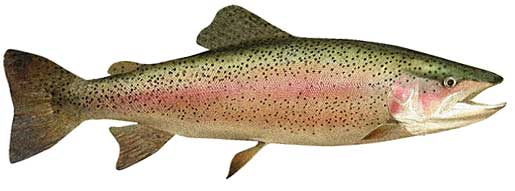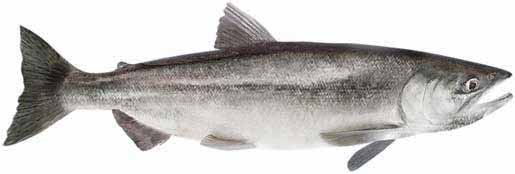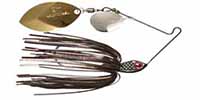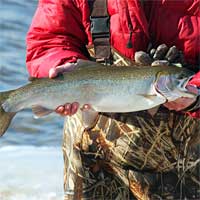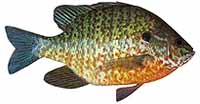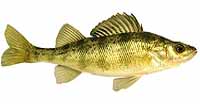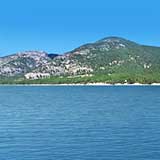Fishing Report For Lake Koocanusa, MT
By Rick Seaman
Last updated on .
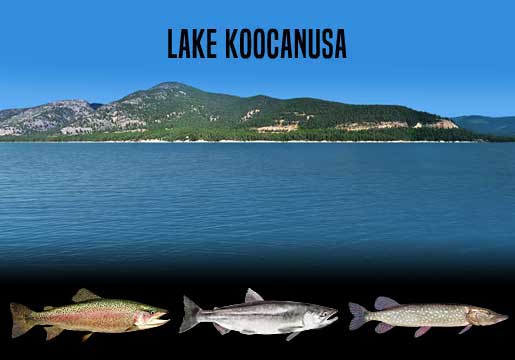
Fishing Reports
Popular Fish Species Lake Koocanusa, MT
Fishing Report: Rainbow Trout
Current Fishing Report: Very Good
The use of new technology is helping anglers catch more rainbow trout. Forward-facing, and side scanning, sonar is currently the best way to locate trout, especially when they school in deep water. Rainbows are caught trolling, casting or jigging, once located on these sophisticated fish finders.
Fly fishing is not covered in this website, but rainbow trout are being caught on plenty of other lures and bait.
FALL. Cooling water temperatures in the shallows, draw rainbow trout out of deeper Summer depths. Anglers are now catching them 10 to 25 feet deep on rocky banks, wind-blown points, rocky structure, humps, and anywhere baitfish are gathering. Plenty of rainbows from 3 to 10 pounds, and larger, are caught here with some regularity. Now that they had a full summer to grow, there are some nice size rainbow to be caught. Small spinners, spoons, jigs, miniature crankbaits and swimbaits are good choices. Later in Autumn, they move into 15 to 25 feet of water.
WINTER. When Winter sets in jigging spoons, and jigs tipped with bait, are catching nice limits of rainbows out of 25 to 35 feet of water, and deeper. Deep trolling with leaded line or downriggers, or vertical jigging with spoons and jigs, are the best approach during the cold-water season.
SPRING. As water begins to warm in early Spring, rainbow trout move from their late winter holding areas to shallow, and feed in 5 to 20 feet areas. A good number of rainbows are typically caught from mid morning to late afternoon, during the warmest water of the day. Shallow flats and rocky structure are quick to warm in the afternoon sun. A wide variety of small spinners, spoons and bait are catching most of the fish.
SUMMER. Once Summer arrives, the warmer water drives rainbow deeper, 20 to 40 feet deep, occasionally deeper. Trolling with spoons, spinners and crankbaits, using downriggers or leaded line, and drift fishing with bait, are currently the most productive methods. Following drop-offs into deeper water, along structure or creek channels, is a major key to getting bites. Anglers fishing from the bank are using nightcrawlers or Berkley PowerBait, with heavy weights on a Carolina rig, to get baits in deeper water.
Fishing Report: Kokanee Salmon
Current Fishing Report: Good To Very Good
Kokanee salmon spend the vast majority of their life suspended in open water.. Currently the use of new technology is helping anglers catch more kokanee. Forward-facing, and side scanning, sonar is assisting anglers in locating and catching these roaming salmon. Catch rates have improved, especially when they hold in deeper water. Once located, these tasty salmon are being caught in good numbers while trolling, casting or jigging. Dodgers, snubbers, hoochies and downriggers are helping anglers catch more fish. Trolling speeds from 0.9 to 1.5 mph are catching the most fish.
FALL. During Fall, kokanee migrate into spawning grounds, which can be along the shoreline of the lake, or upstream in rivers and tributaries. In the weeks just prior to the spawn, they will gather in sizeable schools near the mouths of these inflows. The spawn typically occurs in August and September. Casting or trolling spinners, spoons, or kokanee rigs works well during the spawn.
WINTER. In Winter, kokanee school up and hang out in deep water, most often above some type of structure. Their ideal water temperature is mid to low 50's. Identify the depth for that temperature range, and the kokanee will be hanging out in that depth range. Worm harnesses and wedding ring spinner setups are popular when trolled behind a 4" dodger. Locals are tipping these baits with shoepeg white corn, PowerBait, Z-Man Scented ShrimpZ, or live nightcrawlers. Experiment with depth, all the way to 100' or more. Trolling these baits around 1 mph is ideal.
SPRING. During late Spring kokanee typically move close to the surface where phytoplankton blooms become more abundant, providing a rich food source. Kokanee will feed heavily on this plankton until surface temperatures reach the high 50's. Casting or trolling spinners, spoons, or kokanee rigs works well during this period. Focus on 10' to 20' when they move away from the surface.
SUMMER. Downriggers or leaded line are the two primary methods for catching kokanee here, while trolling. Kokanee school up and hang out over deep water, usually above some type of structure. The ideal water temperature is mid to low 50's. Identify the depth for that temperature range, and the kokanee will be hanging out in that depth range. Worm harnesses and wedding ring spinner setups are popular when trolled behind a 4" dodger. Experiment with depth, starting around 20' to 60'. PowerBait, Z-Man Scented ShrimpZ and scented shoepeg corn, spoons and kokanee spinner rigs are all working well for slow drifting, or trolling.
Fishing Report: Northern Pike
Current Fishing Report: Good
FALL. As the weather starts turning cold, water temperatures cool fastest in the shallows. This brings baitfish into shallower water from 5 to 15 feet deep, and northerns follow along with this food source. They hang around weedbed edges, main-lake points, reefs, and rocky shorelines to ambush prey. This is a prime feeding time as they prepare for winter. It is also a good time to catch a trophy pike.
WINTER. Northern pike remain semi active in Winter, often congregating in or near remaining weed beds, especially along the edges and inflow areas. Additional structure options include points, reefs, ledge drop-offs, and rocky humps, in 20 to 40 feet of water, preferably nearby deeper water. Live bait, cut bait, Johnson spoons, big spinners and spinnerbaits all attract bites from hungry northerns.
SPRING. After ice out, northern pike migrate to shallow, warmer pockets, bays and coves typically in 5 to 15 feet of water. Once water temperatures reach around 40 degrees, they move into even shallower areas with vegetation, to spawn. After spawning they linger in the shallow bays for a short period. Once water temperatures rise into the 50's, they move to deeper weedbeds and shallow structures adjacent to even deeper water. Bright colors, whites and flashy lures appeal to these predators. Noisy topwater lures can also produce some spectacular strikes. Alternate between baits until you identify which one triggers the most bites for the day.
SUMMER. Northern pike scatter all around the lake, rather than gather in groups. This makes them difficult to locate. During the day they are holding from 15 to 30 feet deep, on ledges, reefs, weedbeds, rock piles, islands and channel edges. Some of the larger specimens are suspending in open water, just outside feeding areas. Trolling or drift fishing produces some nice catches, using spoons, big spinners, cut bait, and deep diving crankbaits. Early and late in the day, they move shallow to feed and can be caught around most weedy shorelines. Noisy topwater lures, spinnerbaits and Johnson spoons with curly-tail grubs, are catching nice pike shallow.
Lake & Fishing Video
Fishing tips for boat or bank fishing
Fish species to fish for...
Guide to fishing for largemouth bass, rainbow trout, cutthroat trout, brook trout, pumpkinseed sunfish, yellow perch, kokanee salmon and northern pike at Lake Koocanusa in Montana.
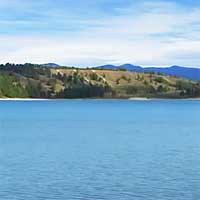
Lake Koocanusa is a 30,000 acre lake, 90 miles long, with over 200 miles of shoreline. This stunning reservoir offers excellent fishing for bass, trout, sunfish, perch, kokanee and pike. There are various areas accessible for fishing from the bank.
Primary fish species to catch
Click images for fishing tips and details about each species.
Today's Weather & Forecast
Fishing Boat Rentals
Click here for fishing boat rentals.
Public Boat Launch Ramps & Landings
Click here for boat ramps.
Marinas
Click here for marinas.
Fishing License
Click here for a Montana Fishing License.
Map - Fishing & Access
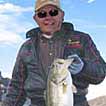
Rick Seaman is a fishing enthusiast with over five decades of fishing experience, a retired tournament fisherman, author of numerous published articles on fishing, and co-author of the book "Bass Fishing - It's not WHAT you throw, It's WHERE you throw it".
Contact Information
Koocanusa Resort & Marina
23911 Scenic Hwy MT-37
Libby, MT 59923
406 293-7474
Fishing lakes in each state
010826
MONTANA


Information about fishing lakes in Montana
Fishing in northwest Montana, offers bass, trout, sunfish, perch, kokanee and pike.


